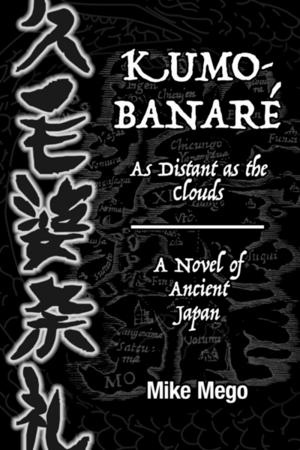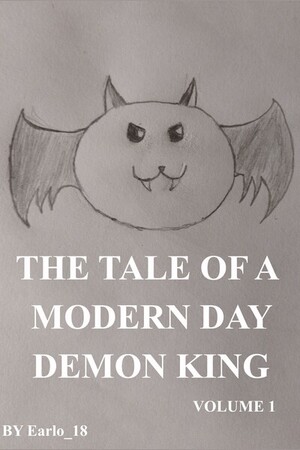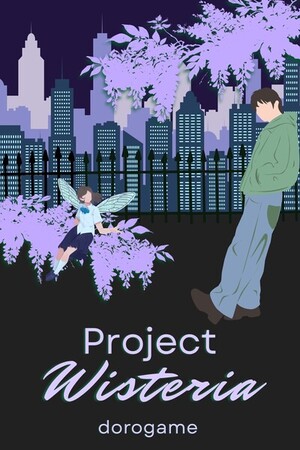Chapter 3:
Grounds for Hunting
Kumo-banaré: As Distant as the Clouds
A team of Yamato men, warriors nonetheless, approaching an outsider who happened too close to their village could only mean one of two things: either they suspected some threat posed by this outsider and wished to drive them away, or they had thought of some way the outsider could be put to use for their community and wanted to bring them in. With a freshly-slain prize stag at her feet, Muna leaned towards the latter. Perhaps the village had come on hard times; with no luck in hunting, they were low on meat heading into the winter. It was always tough for Muna to give up her spoils, but she could not object to helping those in need, as long as they paid her back justly.
Then again, she thought, do most of the people in these villages even eat meat?
From what she had heard, the most common food in the Yamato settlements, by a generous margin, was grains, and specifically rice. The Yamato had managed to control the local waters and perfected their farming; they could grow even a surplus of grain with little effort. The result was that most of them had laid aside their bows and spears entirely, and taken up the hoe and the spade in their place.
In that case, it was more likely these men themselves were hoping this deer would come to them. Muna suddenly felt a little less keen on sharing.
Now the men were upon her. Not even giving her a chance to stand up, the younger one planted his feet fast in the grassy ground, keeping as much distance as his spear allowed while making sure its iron tip was no more than a foot away from Muna’s body. The older one soon joined him at his side. With a furrowed brow and his hand still ready by his sword he addressed the huntress.
“Girl,” he began, “tell me, have you been split off from your tribe?”
The “tribal” language yet again. When they were not directly calling her a Hayato or a Kumaso, the Yamato would save some of their reasoning and lump her in with both. Muna took a moment to consider how to respond to this, how to tread upon this conversational surface; whether bluntly or roundabout, truthful or deceitful. She went with the former in both cases.
“…I have no tribe,” she plainly answered. “I am not a Yamato, nor am I a Hayato.”
The man harrumphed. “Then, if you don’t know who you were born to, did you at least know you cannot hunt here?”
“I didn’t,” she said, as she extended a protective hand out over the stag’s carcass. “But why? Have I wronged this forest in some way? Did you hear this stag’s soul cry out for revenge?”
The corners of the warrior’s mouth inched together in confusion. “What? Of course not! The one you’ve wronged here is the Great Kimi!”
“The Great who?” Muna returned. Their Yamato tongue must have been a few dozen suns ahead of whatever version her father had taught her. Sometimes she was able to surmise what an unfamiliar word meant, if not at least what kind of word it was, but this one in particular—“kimi”—sounded completely foreign to her, as if it were another language. As long as this kind of nonsense was mingled in with their arguments, she could not see this conflict ending peacefully.
“The man—no, it’s not right to call him a man—the holy one who owns this village and this whole forest behind you!” the man fired back.
“And who gave it to this kimi?” questioned Muna.
Now the man let his scowl fall and chuckled in disbelief. “Ah, you may say you’re not a tribal, girl, but you act just like them! ‘What claim do you have to this land? Why are you building all these big wooden huts here? What are you storing up the seeds from these crops for?’
“It’s about time we gave them another example,” he said to his spear-wielding companion. “We’ll take her back with us.”
The younger man nodded and, not giving Muna a moment away from his iron-tipped weapon, circled around to her rear.
“Get up,” he ordered her. Muna did as he said. She managed to keep her composure about her, but certainly struggled to do so. A fine tool of killing was aimed where she could not see it, and her hips and lower back were inclined to arc away from it. Meanwhile the older man unfastened a woven hemp rope from his belt and snapped it taut.
“Put your hands out behind you,” this one shouted, pointing at the pair of hands currently resting at her side.
Muna paused for a moment. Doubtless he would tie the rope around her wrists if she complied, and then he and his partner lead her back to their village. But to what fate? What “example” were they thinking of giving the Hayato and Kumaso who also happened upon their village or their so-claimed forest? She was to be bound—trapped—and as Muna knew, trapping almost always led to killing sooner or later. She did not like conflict, but in this moment, her will to survive steered her toward that course.
The older man, growing impatient, opened his mouth to say something else to her—to curse her out, to threaten her, to force her to submit—but he let out only a brief stammer before the words he was going to say were forced back down his throat. His quarry leapt up into the air, high, well above their heads, and dove backwards.
WOOMPH!
Muna drove her feet straight into the spearman’s chest, knocking him and his weapon to the ground. She picked this up.
The range between Muna and the man still on his feet was too close for her to make use of the tip of their weapon, but that hardly mattered. Its thick shaft, nearly eight feet of solid wood, could be put to use in other ways. Raising it above her head, she swung it downward toward where the man was standing. He was just barely able to dodge, sidestepping to Muna’s right. As the spear hit the solid, dewy earth with a wet thud, Muna felt it jolt and tremble in her hands. She took a moment to regain control, during which time the man dropped the rope and reached for the handle of his sword with his right hand.
Muna knew what to do now. She drew the spear to her left, wound up, and swung it once again toward the man. As her spear cut through the air, the man’s sword flashed forth from its scabbard.
KRAK!
Steel and wood firmly meshed together. The sword dug deep into the spear, but not so deep as to threaten splitting it. Seeing the leverage he had with the shorter arm, the warrior pushed in, but Muna quickly shored up her balance, bringing her left hand to the other side of the niche formed by the sword’s impact. The man was bigger and stronger, but he was facing an uphill battle; as the two strained against each other they were evenly matched.
Were they the only two combatants alone, Muna might have stood a chance at overcoming the older man, but the dearth of her history with fighting her fellow man finally showed itself when the younger man recovered. The vigor of the struggle coursing through her veins drowned out the sound of this man’s steps towards her, and—
CHOP!
The edge of this man’s hand brought a quick, sharp shock to Muna’s neck before she felt her whole body go limp. For a few moments the world went dark. When the light returned, she saw both men up on their feet, conversing.
“…Well, what now? Do we kill her?”
“Bah! No honor in killing a woman, ‘specially a young one like her. But, egh… She’s no wife for sure, either.”
“I know what you mean. I fear any kids she’d have would want to go live with the wolves instead!”
“Hah-hah-hah-hah! Right, let’s see what Muraji and the Great Kimi want to do with her. If you’re lucky you might be the one to put her head on a spike, give that spear a good send-off.”
Both men roared with laughter. Muna was vexed by their words, but right now she became more concerned with preserving her life than having to hear some childish jeers. She tried to get up, up to her feet, but neither her arms nor her legs seemed to move to her will. She thought to crawl. Still nothing; all she could do was scrape frivolously at the dirt with the tips of her fingers. With her sight blurry and her head cocked to the side, she could only make out one of the two figures who were sure to be there draw closer to her. Then she felt two hands seize her hips and hoist her off the ground.
Not far off, as she was being settled on one of the men’s shoulders, she heard something large being slid across the grass. Most likely that was the stag being carried off as spoils. But forget the stag’s fate, Muna was almost certain of hers, whether she wished to accept it or not. In resignation, her eyelids slowly slid shut, and her world slipped into darkness once again.




Please sign in to leave a comment.